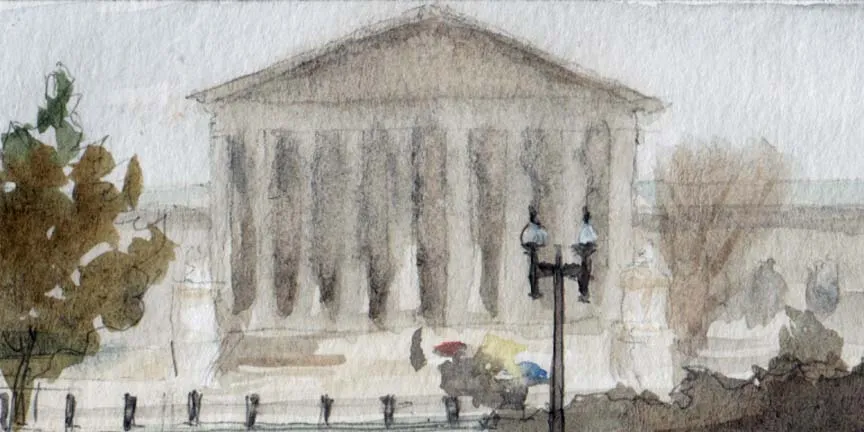Tuesday round-up

on Feb 12, 2019 at 7:15 am

In an op-ed for The New York Times, Alan Cross weighs in on the court’s 5-4 decision last week to allow Alabama to execute a Muslim inmate who had challenged Alabama’s refusal to permit an imam to be by his side when he died, noting that “[w]hat has gone largely unnoticed, but is in fact much more disturbing, is what Alabama did while the Ray case made its way through the courts: To further protect itself from Mr. Ray’s challenge, the state indicated it would end the practice of having a chaplain or spiritual adviser in the death chamber altogether.” At The Economist’s Democracy in America blog, Steven Mazie writes that “[a]side from acknowledging the religious discrimination of their previous policy, this move matched similarly fraught strategies of addressing racial discrimination claims during the civil-rights era.” At The Atlantic, Wajahat Ali wonders “[h]ow … these five justices [would] have responded if all the facts were the same but Ray were a Christian and the imam were a priest,” and he suggests that “[i]f the free-exercise clause allows you not to bake and sell a cake, maybe it should also allow you to have an imam at your own execution.”
Briefly:
- Amy Howe reports for this blog, in a post first published at Howe on the Court, that yesterday the court released its April argument calendar, which “is perhaps most noteworthy for what it does not currently include: the challenge to the Trump administration’s decision to add a question about citizenship to the 2020 census.”
- At Lawfare, Steve Vladeck urges the justices to review Larrabee v. United States, a cert petition on the list for Friday’s conference, and to “hold that retired service members are no longer part of the ‘land and naval forces’ for purposes of the Constitution—and thus can be tried only by civilian, rather than military, courts for offenses committed after leaving active duty.”
- At E&E News, Ellen Gilmer reports that “[t]he Supreme Court is halfway through its current term, but the bulk of its environmental issues are still awaiting resolution.”
- At Take Care, Leah Litman explains how Justice Brett Kavanaugh’s dissent from the Supreme Court’s order in June Medical Services v. Gee, which blocked a Louisiana law that would require abortion providers to have admitting privileges at nearby hospitals from going into effect pending appeal, shows “how reproductive justice supporters were exactly right about Justice Kavanaugh in particular.”
- At The World and Everything in It (podcast), Mary Reichard breaks down the oral arguments in reargued takings case Knick v. Township of Scott, Pennsylvania and in Rimini Street Inc. v. Oracle USA Inc., about the scope of the costs awarded to a prevailing party in a copyright case.
We rely on our readers to send us links for our round-up. If you have or know of a recent (published in the last two or three days) article, post, podcast, or op-ed relating to the Supreme Court that you’d like us to consider for inclusion in the round-up, please send it to roundup [at] scotusblog.com. Thank you!


